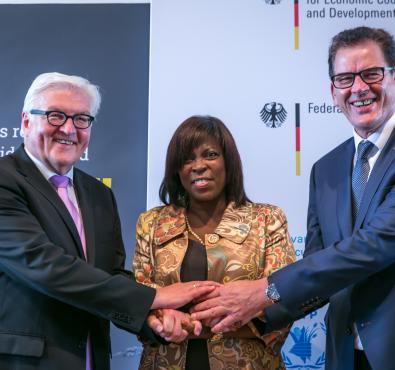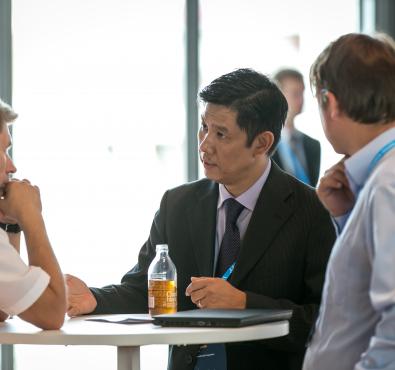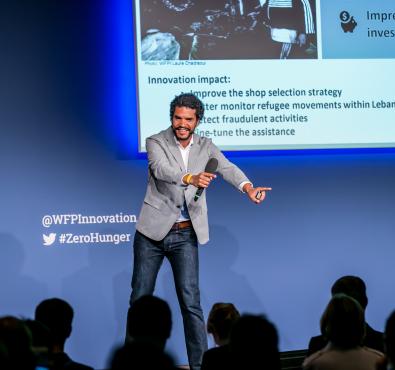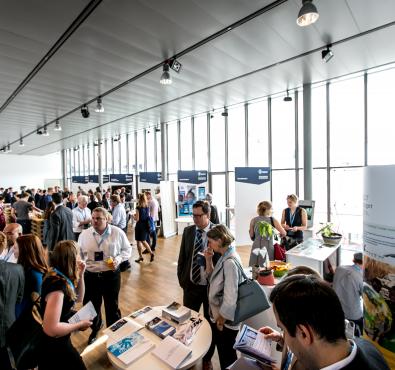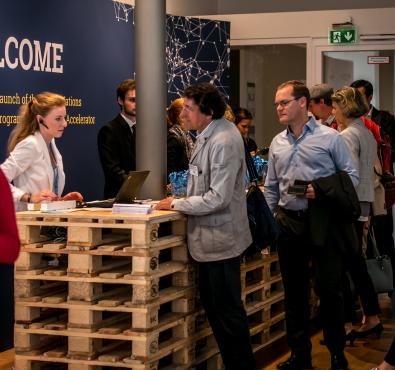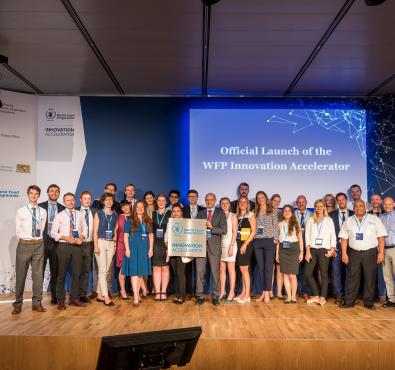The World Food Programme (WFP) is encouraging external organizations and the general public to share expertise, resources and bold solutions to help achieve Sustainable Development Goal 2 and create a world without hunger.
Innovation is already a cornerstone of WFP’s efforts to provide food assistance to over 80 million people worldwide each year.
For instance today WFP distributes e-cards so that the people we serve can buy what they need, when and where they need it, and pay for it as if using a debit card. Also, for the first time in the history of the retail industry, Syrian refugees in Jordan can use an eye-scan as a method of payment.
WFP Executive Director Ertharin Cousin said: “We are committed to ending hunger by 2030 and to achieve that, despite new crises, we must be bold, seeking new ideas, tools and solutions.
“New technologies, a revolution in big data and a desire to collaborate like never before mean that working together we can transform the pace of addressing the persistent challenges that have kept generations locked in hunger and poverty.”
To create an environment that supports and nurtures innovative thinking and the development of new approaches and partnerships, WFP today officially launched an Innovation Accelerator in Munich, Germany.
The Accelerator invites the private sector, civil society and WFP staff with innovative ideas to tackle humanitarian and development challenges together. It is a dedicated hub bringing together cross-industry expertise and resources to design and test innovations quickly in a supportive space. It includes bootcamps to quickly understand problems and develop solutions, and sprint programmes to support rapid testing and prototyping.
As part of the official launch, WFP today announced a new partnership with METRO Cash & Carry. METRO, WFP’s first global retail partner, shares industry expertise and involves worldwide customers and employees in fundraising activities for school meals programmes. WFP also announced a partnership with ACATECH, the German Academy of Science and Engineering, to identify and develop innovative solutions.
There are already numerous examples of projects that have been developed by the Innovation Accelerator since it opened last year.
These include AgriUP, a low-bandwidth smartphone app that aims to provide location-specific information on market prices, weather and farming methods to smallholder farmers.
Its creator, WFP Programme Assistant Hector Roca, said: "The project is a way to expand our ideas and hopefully to help reducer hunger in the world in the coming years."
The AgriUp team is now running a pilot in Guatemala, where family farmers represent approximately a third of the country’s population. These farmers are vulnerable to chronic hunger and constrained by limited farming knowledge and low levels of literacy.
Another innovation, the Zero Post-Harvest Losses Programme, sells low-cost, locally produced food storage containers to smallholder farmers in developing countries. This project can virtually eliminate the food losses that often destroy up to 40 percent of a farmer's harvest.
So far, the project has sold grain silos to more than 65,000 smallholder farming families in Uganda alone, helping them save more food and sell more of their surplus in local markets.
ShareTheMeal is a smartphone app that enables users to "share their meal" with hungry children – with just a tap. A donation of US$0.50 helps provide a child with vital nutrition for the day so he or she can stay healthy. Currently, ShareTheMeal is fundraising for Syrian children who have fled with their families to Lebanon. Since the launch in 2015, around 500,000 users worldwide have provided more than 5.6 million meals.
Those organizations and individuals who would like to pitch ideas to the Innovation Accelerator should contact global.innovation@wfp.org or via twitter @WFPInnovation.
